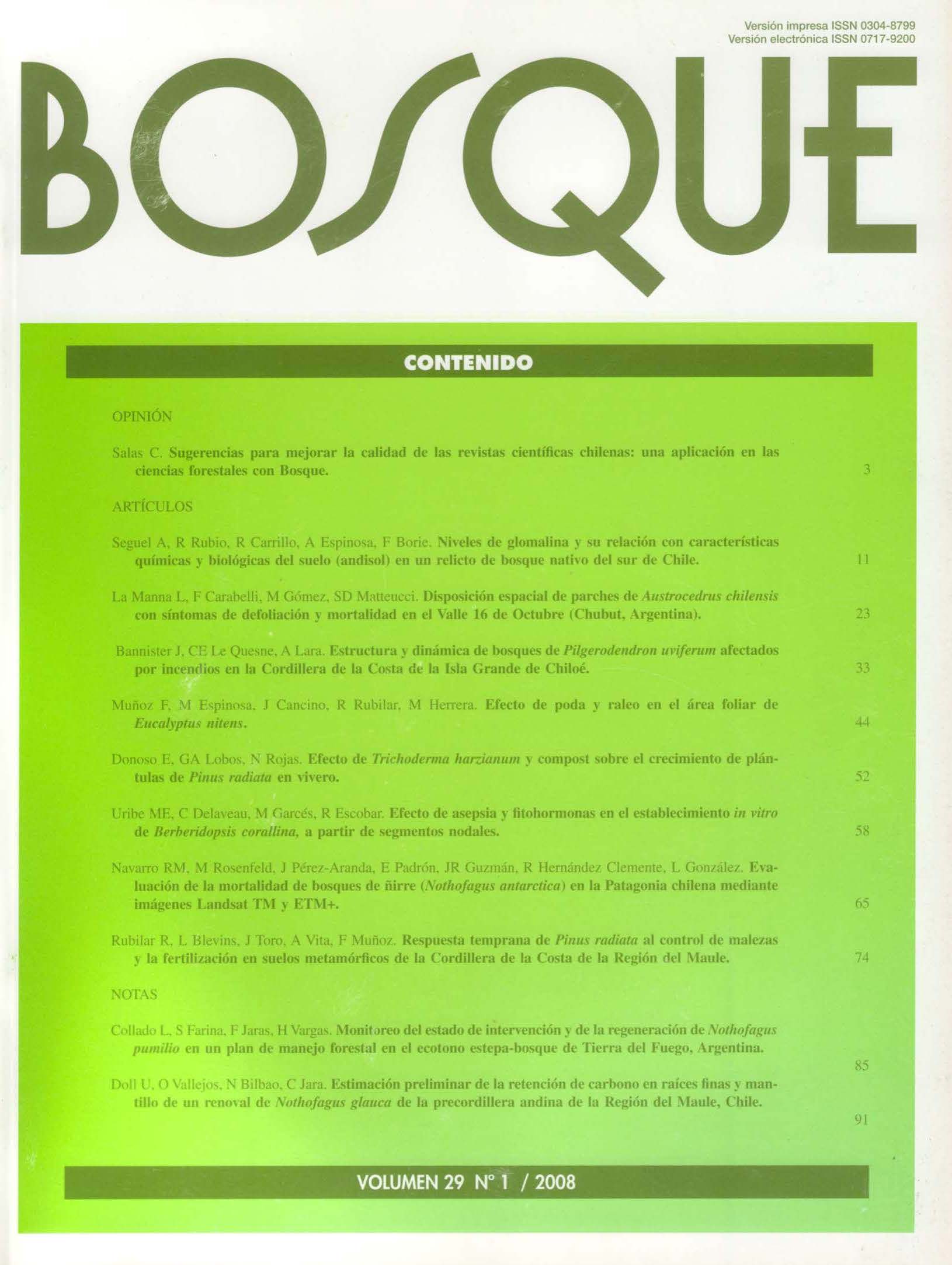Effect of asepsis and phytohormones on the in vitro establishment of Berberidopsis corallina from nodal segments
Main Article Content
Abstract
In order to establish a protocol for the in vitro propagation of Berberidopsis corallina (red michay), the micropropagation of this endemic species of the Chilean Coastal Mountains was studied on MS and DKW media using nodal segments as explants source material. Different concentrations and exposure times of the disinfectant ethanol and commercial chlorine were tested. During the establishment phase, although no significant differences were observed between culture media, the DKW½ medium was selected because the microshoots presented greater vigor and better elongation with this medium. During the proliferation stage, the results indicated that to multiply the shoots and stems, the optimal growth regulation concentration were 0.5 mg L-1 and 0.1 mg L-1 of BAP and IBA, respectively. A positive result in caulinary elongation was observed with the addition of GA3 (0.2 mg L-1). Considering these preliminary results, it was demonstrated that the asexual multiplication of red michay is possible, showing that micropropagation is a potential biotechnological tool, useful for conservation of this interesting native species.

